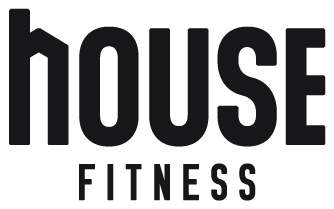Go Unplugged: Why Technology May Be Holding You Back From Getting the Most Out of Your Workouts
SEPT 7, 2021
Go Unplugged: Why Technology May Be Holding You Back From Getting the Most Out of Your Workouts
Eliminating technology from your workouts could be what you need to bring you back to what truly matters.
By House Fitness
In 2021, fitness technology is becoming increasingly popular — and it’s really no mystery as to why. They provide a ton of quality feedback about what’s going on in your body from statistics on your performance, recovery, and sleep quality to real-time data on your heart rate, steps taken, exertion, and more. There’s a high probability that you’ve seen a fellow gym-goer with some kind of fitness tracker (from a smartwatch to a ring or a bracelet) or a fitness app on their phone.
But, with the popularity of these novel fitness apps and wearables on the rise, comes an increased dependency that can do more harm than good. It’s important that we recognize when technology is becoming a handicap, as well as decrease our overall dependence to get back to what truly matters; humanness, natural intuition, and the connection to our bodies.
When Does Technology Become Detrimental to Our Workouts? When is It Actually Holding Us Back From Achieving More?
The more that we rely on technology, the less in tune with our bodies we become. When we’re constantly consulting an app to try and understand what’s going on inside of our bodies, the less opportunity there is for growth — especially when it comes to our mind-muscle connection and intuition. In order to actually experience growth in these areas, we need to listen to our bodies when we train; not technology.
Remember: it’s not the apps on your phone or the smart technology you’re wearing that are getting you fit. YOU are getting you fit. You don’t need any type of app or piece of technology to get you there.*
*Disclaimer: It is important to mention that the use of fitness tech is not black or white. Not everyone that utilizes fitness apps or wearables is inherently less effective when they are working out. However, it is critical to ask yourself if the technology is really serving you in the way you think it is.
“Technology is a useful servant but a dangerous master.”
— Christian Lange
How Technology is Acting as a Barrier to Achieving Your Fitness Goals
Ultimately, the biggest barrier that fitness tech creates is distraction.
Do you go on your phone during rest intervals? Scrolling on social media during rest takes your mind away from the workout. You’re no longer focusing on your breathing or how your body is feeling between reps.
Do you keep your notifications turned on during your workouts? Every text, notification, email, and reminder distracts you from what you’re trying to accomplish in the gym. Constant distractions keep you disconnected because you’re not allowing yourself to become fully immersed in your training.
Are you constantly consulting your fitness wearable? It’s hard to be present in your body and workout when you’re distracted by stats and data. You don’t need to consistently check up on an app or a wearable during your workout to track your progress. All you’re doing is distracting yourself from a better workout.
“Smartwatches don't keep you fit, activity does. Do you really need to know what your pulse rate is, every minute?”
— Abhijit Naskar
How much time are you spending looking at fitness apps? There’s a delicate balance we need to maintain when it comes to not only consulting our fitness apps, but also in the time that it takes to update/input data that certain apps call for (i.e. weight changes, measurements, calories in and out, daily activities, mood tracking, workout routine, etc.) Ask yourself, “Is the time I’m taking to input all of this data actually aiding me in my fitness journey? Or, is it simply a distraction that makes me feel like I’m doing work, without actually putting in the work?” It’s a tough question to answer honestly, but there is a fine line between leveraging data to track progress versus a distraction to take less action. Be honest with yourself when you ask yourself, “Am I actually using this data?”
The Main Barrier that Technology Creates in Your Workouts
The most detrimental influence that fitness apps and tech have on our workouts is the distraction from our intuition.
Being in tune with our intuition is critical not only in our workouts, but our entire lives. It’s a universal skill that keeps us connected to our bodies (both mentally and physically), present in the day-to-day, and less distracted by what is out of our control.
We all want less distraction in our lives and to become more intuitive when it comes to understanding our bodies, but the actions that we choose — such as relying on or focusing too much on handheld/wearable technology — pulls us further away from achieving this.
Apps and wearable technology create a slippery dependency. Consulting technology as a means of measuring your progress can be helpful, but when it tips the scale into using it to understand how you feel, you’ve gone one step too far.
For example, if you track your sleep with a wearable and check it every morning to see how ‘rested’ you are, this can be a useful tool to understand your daily habits that lead to better sleep vs. those that do not. But, when it tips the scale to checking the app to see if you feel more rested rather than checking in with your own body, you’re giving away too much of your power. If you originally felt rested when you woke up but then consulted your app and it told you that you got poor sleep, the placebo effect can take over and you may actually feel less rested.
When you’re less engaged with being intuitive, you’re less connected to yourself and the world around you. You’re unlearning your natural intuition skills. Be careful about not putting too much weight on what these stats and data are telling you. Instead, listen to your body.
Your intuition has been around since humans have been around. We shouldn’t stop focusing on what it is to be intuitive as a human. There is no more wisdom in a fitness app than there is in being a human.
“It is okay to own a technology, what is not okay is to be owned by technology.”
— Abhijit Naskar
If you want assistance in becoming more present and intuitive during your workouts
connect with one of our knowledgeable trainers





